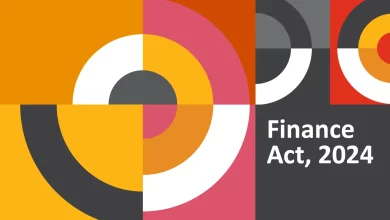KARACHI: The State Bank of Pakistan (SBP) has withdrawn the monetary limit on credit provided to the private sector of the country.
Sources in the banking industry said on Monday that in this regard final approval will be obtained during a meeting of the National Credit Consultative Council (NCCC) – the highest policy-making body responsible for monetary and credit matters.
The meeting of NCCC – to be presided over by Governor SBP, Dr Ishrat Hussain – will be held on January 16, 2003.
Sources said during the second half of the current year the SBP does not plan to make any single change in the annual targets of the National Credit Plan, approved in July 2003.
The SBP has notified all stakeholders that “it is again emphasised that the genuine deviation requirements of the private sector will be met.
Therefore, there is no need for a revision in the credit plan itself.
Meanwhile, the SBP will be very vigilant of the developments and will ensure that price stability is not threatened”.
During the first half of the current financial year, the net credit expansion to private sector jumped by a record amount of Rs91.4 billion to Rs156.8 billion. This stands in sharp contrast to the first half of the last financial year when credit to the private sector was limited to Rs65.4 billion.
The SBP has explained this record credit expansion by saying: “The prevalence of record low interest rate environment for almost two years now, has drastically reduced the cost of bank borrowing. This has spurred the demand for credit by the private sector as its credit off-take has continued to expand at a very high rate even during the first quarter of the fiscal year, which is usually a retirement season.
“Private sector availed bank credit to the extent of Rs156 billion during July – December 27, 2003 compared with Rs65.4 billion during the corresponding period of the last year.”
The State Bank of Pakistan – expecting retirement of credit from the private sector during the coming six months – said: “It is expected that year-end monetary growth will still be 11 per cent. Further, there will be some retirement from the private sector credit as it has already reached its peak.”
The central bank has estimated that “even if the private sector credit expansion remains high, it is expected that retirement from commodity operations, public sector enterprises and less than estimated borrowings by government for budgetary support will offset the impact of higher private sector credit expansion”.
The SBP has further reported to the NCCC that, “the money growth through the accumulation in NFA (net foreign assets) is almost on target and no major deviation from the estimates is expected”.
Sources said during the first half of the current financial year, the share of gross credit disbursement of commercial banks rose to 56.25 per cent from 42.35 per cent in the corresponding period of the last year.
The SBP added: “Within commercial banks, National Bank of Pakistan (NBP) continued to lead credit disbursements with a share of 34 per cent followed by Habib Bank Limited (HBL), 23 per cent; United Bank Limited (UBL), 14 per cent; Muslim Commercial Bank (MCB), 12 per cent; Allied bank Limited (ABL), 10 per cent and domestic private banks 7 per cent”.
Specialised banks like Zarai Taraqiati Bank Limited (ZTBL) disbursed Rs10 billion during July-November 2003. However, the share of ZTBL in the overall credit disbursement continued to fall due to aggressive entry of private domestic commercial banks.
Figures released by the SBP show that compared to the period, July-November 2003 of the last financial year, the same period during the current fiscal year saw the disbursement of Rs1,241 million by ABL, Rs3,032 million by HBL, Rs1,609 million by the MCB, Rs4,363 million by NBP, Rs1,779 million by UBL, Rs942 million by private commercial banks, Rs8,327 million by ZTBL and Rs1,757 million by Punjab Provincial Cooperative Bank (PPCB) to the farming community of the country.



